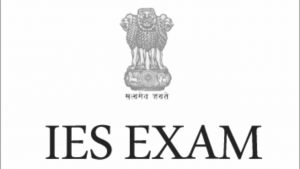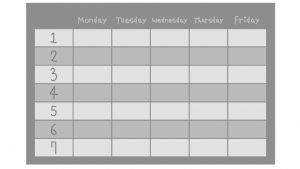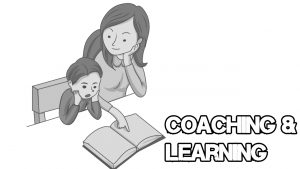How to pass IES exam: “IES” is an abbreviation for the Indian engineering services examination. The IES is a yearly engineering services examination conducted by UPSC. The IES is by far one of the toughest examination for engineering graduates because of the high level of competition and vast syllables it covers. Students therefore endeavored to pass the examination because of the many opportunities it heralds for a smooth and successful career.
Not only does it provide graduates with numerous high flying opportunities, it also allows engineering graduates put their years of education into practice, together with serving their country. The engineering services examination is conducted in three phases. In the preliminary stage known as the first stage, two papers are written.
The first is on general studies and engineering aptitude which carries 200 marks, and is written in two hours, and the second paper is on engineering subject which carries 300 Marks and is written in three hours. At the second stage, students who qualify in the first stage will write two papers, both on engineering subjects, both carry 300 marks and are written in three hours.
The last stage is where students undertake a personality test that carries 200 marks. The engineering services examination thus consists of written examination in the first two stages, and finally an interview for the personality test in the last stage.
Every year, lots of graduates apply for this examination, but unfortunately, not all of them make it through the three stages because of inadequate preparation or unsettled mind. That is why the aim of this article is to deliver some pointers and important information that one needs to know, in order to crack the examination and beat the cut throat competition.

Before we go into the aim of this article, i strongly recommend that you watch the YouTube video below for more tips on how to crack IES Exam.
Recommended: How to prepare and pass scholarship examinations
How to Prepare and Pass IES Exam
1. Self evaluation: The first step is to evaluate yourself, your strengths, weaknesses and capabilities. Here, you motivate yourself. Reassure yourself that you have what it takes to succeed, and that you are a beacon of excellence. If you are not mentally, emotionally and psychologically ready, you cannot put your best foot forward and make all the necessary sacrifices in order to ace the examination. Certain questions need to be asked:
Have I internalized the syllabus?
Am I clear on the basics?
Do I have what it takes?
Do I need coaching?
How much time do I have?

If you are knowledgeable about the basics and have internalized the syllabus, then there is clearly no need for coaching. What you need at this point is regular study, both personalized and individualized. Every candidate must begin with a bang, that is, every candidate must be filled with enthusiasm and lots of confidence. This is what will keep you and carry you throughout the examination. There is no need to be afraid or nervous. Fear is definitely the beginning of failure.
2. Make a study timetable: It is important that you make a personal study plan for yourself. This will definitely enable you partition time to all these subjects. It will also prevent you from derailing from your studies, and ensure you complete all the subjects that are necessary for the examination. It is not enough if you make a study plan and you abandon it, no!.
You have to follow the study plan to the latter.
Ensure all distractions are erased
Ensure your study environment is isolated
Stick to time and switch to the next subject immediately the time for its study arises
Avoid procrastination by making use of an alarm or reminder.
Remember that making a study timetable is half the work, while the rest, is you being true to yourself and the subject.

Also see: Best science courses to study in the university
3. Internalize the syllabus: Before studying for the exam you must internalize the syllabus, that is you must know the syllabus with respect to each subject. The syllabus is wide, so it is very important that you know it, so that you will not waste time on the unnecessary topics or subjects, rather you channel your energy towards the important subject and topics. Before reading also, you must know the recommended textbooks. The study plan will be useless if you do not know the recommended texts, and you end up reading unnecessary material.
There are lots of books on particular areas in the market, so you have to be wise when selecting books to read. Reading all is definitely a waste of time and energy, and you will not be able to finish the syllabus on time. Therefore when shopping for books, it is best to choose books that are written according to your taste, those explicitly recommended, or those that are in tune with the syllables.
Also recommended are study materials from coaching institutes. To be able to receive these materials, you can join them or request for poster delivery.
4. Coach: This has been briefly discussed, but it must be emphasized that due to the high level of competition that the exam comes with, it is not unwise to seek guidance from external parties, especially parties that have excelled in the examination. You can take physical classes or online classes depending on your choice, and you can also receive online materials from those learning institutes.

Also see: How to become a successful business entrepreneur
5. Note making: It is not a must that you must make note. Most persons prefer reading directly from the course textbook and materials, while others find notes making boring and stressful. But in truth, note making is an art, and if adopted, helps motivate the spirit of the candidate throughout the journey. Note making comes as a sort of revision after taking classes and going through the course text.

Note making is also helpful during examination, as you will no longer have to go through the work of revising the large textbooks, instead you could just go through your highlighted notes. Note making also definitely helps you concentrate better while reading.
6. Take breaks: All work and no play makes Jack a dull boy, therefore all study and no breaks will make you dull and slow like Jack. It is therefore imperative that you keep taking timed breaks in between your study timetable.
During this break, you can have light refreshments, take short naps or do something engaging, so that you can be better motivated when the time for study comes again. One or two breaks are okay, don’t overdo it. Too many breaks can hamper your studies, giving you less time to study and more time to play around.
Recommended: Richest Lawyers in India and their net worth
7. Read all: Ensure to read everything in the syllabus, do not leave any topic or subjects out. This is to avoid falling into grave mistakes and later regretting it. You may not know what the lecturer will demand from you or what he will set in the examination, therefore, it is advisable that you cover the field. By doing this, you have all the information required, and you will not be caught unaware in any section in the examination.
8. Focus on your personality, communication and writing skills: This is necessary for both written and oral exams. Master the art of the pen. If it is a written examination, you would be required to express an idea, outline your thoughts, or spell out someone else’s ideas or thoughts, therefore it is necessary that you develop your communication and writing skills so that you appear coordinated and professional.

If it is an oral interview, ensure that you are properly dressed for the interview. Practice sitting positions and gestures before the interview. Watch your tone and never be rude. Do not over shadow the interviewer, always follow their lead.
Also see: How to prepare for an interview and pass excellently
Conclusion
In addition to the above points, these can also be adopted in order to be a star scholar and stand out when the IES results are published:
a. Solve past questions
b. Attend classes/tutorials
c. Put your best foot forward
d. Attend group discussions
e. Revise occasionally
Always ask questions when you are confused or do not understand a concept.

Edeh Samuel Chukwuemeka, ACMC, is a lawyer and a certified mediator/conciliator in Nigeria. He is also a developer with knowledge in various programming languages. Samuel is determined to leverage his skills in technology, SEO, and legal practice to revolutionize the legal profession worldwide by creating web and mobile applications that simplify legal research. Sam is also passionate about educating and providing valuable information to people.